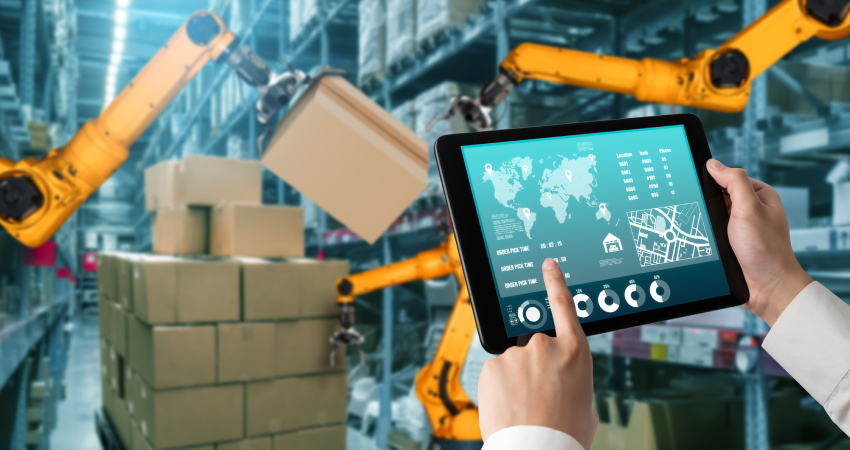Introduction:
The transportation and logistics industry plays a critical role in the global economy, ensuring the efficient movement of goods from suppliers to consumers. In recent years, app and software development has been instrumental in driving innovation and improving operational efficiency in this industry. As we delve into 2023, several exciting trends are reshaping transportation and logistics app and software development. In this article, we will explore the latest advancements in this field and their transformative impact on the way goods are transported and managed.
Internet of Things (IoT) and Sensor Technology:
The Internet of Things and sensor technology are revolutionizing the transportation and logistics industry. IoT devices and sensors provide real-time data on factors such as location, temperature, humidity, and condition of goods. This data enables logistics companies to monitor and optimize supply chain processes, ensure timely delivery, and proactively address any issues that may arise. In 2023, we can expect further integration of IoT and sensor technology, leading to increased visibility, efficiency, and transparency in logistics operations.
Artificial Intelligence (AI) and Machine Learning (ML):
Artificial Intelligence and Machine Learning are driving advancements in transportation and logistics app and software development. AI-powered algorithms can analyze vast amounts of data to optimize routes, predict demand, and automate processes such as freight matching and pricing. Machine Learning algorithms continuously learn from data, enabling improved decision-making and enhanced operational efficiency. In 2023, we can anticipate the integration of AI and ML in transportation and logistics systems, leading to smarter and more efficient supply chains.
Blockchain Technology:
Blockchain technology has the potential to transform the transportation and logistics industry by enhancing transparency, security, and trust in transactions. Blockchain can facilitate secure and tamper-proof record-keeping, automate contract management, and enable efficient tracking of goods. It also allows for seamless collaboration and information sharing among different stakeholders in the supply chain. In 2023, we can expect increased adoption of blockchain technology in transportation and logistics, leading to more secure and efficient supply chain operations.
Autonomous Vehicles and Drones:
Autonomous vehicles and drones are poised to revolutionize the transportation and logistics industry. Self-driving trucks and delivery robots can optimize route planning, reduce human errors, and increase operational efficiency. Drones can be used for last-mile delivery, inventory management, and inspection of infrastructure. In 2023, we can anticipate further advancements in autonomous vehicles and drones, offering faster, safer, and more cost-effective transportation solutions.
Mobile Applications and Fleet Management:
Mobile applications have become indispensable tools for transportation and logistics companies. These apps enable real-time tracking of shipments, driver communication, and efficient management of fleets. They also provide customers with visibility into the status of their shipments and facilitate seamless communication. In 2023, we can expect more feature-rich and user-friendly mobile applications, empowering both logistics companies and customers with greater control and convenience.
Predictive Analytics and Demand Forecasting:
Predictive analytics and demand forecasting are becoming crucial components of transportation and logistics app and software development. By analyzing historical data, market trends, and external factors, predictive analytics algorithms can forecast demand, optimize inventory management, and streamline supply chain operations. In 2023, we can anticipate the integration of advanced predictive analytics tools in transportation and logistics systems, enabling companies to make data-driven decisions and achieve higher operational efficiency.
Cloud Computing and Data Security:
Cloud computing has transformed the way transportation and logistics companies manage and store data. Cloud-based systems provide scalability, accessibility, and real-time data sharing among different stakeholders. Additionally, data security has become a top priority in the industry, given the sensitive nature of logistics operations. In 2023, we can expect increased adoption of cloud computing solutions and stringent data security measures to protect sensitive information and ensure smooth collaboration.
Green Technology and Sustainability:
The transportation and logistics industry is increasingly focusing on sustainability and adopting green technologies. Electric vehicles, alternative fuels, and energy-efficient practices are being incorporated to reduce carbon emissions and minimize environmental impact. In 2023, we can anticipate further integration of green technologies in transportation and logistics app and software development, promoting sustainable supply chain practices and supporting environmental conservation.
Conclusion:
The transportation and logistics industry app and software development are undergoing rapid transformations, driven by advancements in IoT, AI, blockchain, autonomous vehicles, mobile applications, predictive analytics, cloud computing, and green technologies. These developments are enhancing operational efficiency, improving supply chain visibility, and enabling sustainable practices. As we enter 2023, it is crucial for transportation and logistics companies to embrace these technologies and leverage their potential to stay competitive, meet customer expectations, and shape the future of the industry.

